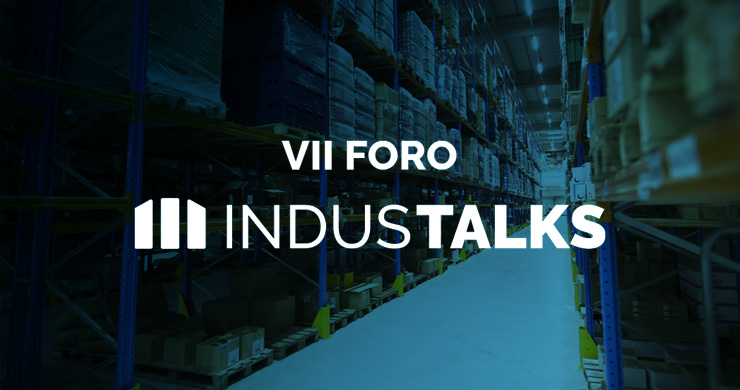Article written by Ana Cabanillas
Head of Purchasing, Logistics, and Warehousing
Nowadays, efficient warehouse management and logistics operations have become a determining factor for the competitiveness and sustainability of companies, regardless of the sector in which they operate. Market globalization, the increasing complexity of supply chains, and customer demand for faster and more accurate deliveries are forcing organizations to optimize all processes related to storage, distribution, and inventory management. In this context, having specialized software to control these areas is no longer an option, but a strategic necessity.
Firstly, warehouse management software (WMS) allows for comprehensive control of inventory in real time. Thanks to the digitization of processes, companies can know exactly how many units of each product they have, where they are located, and their turnover rate. This control prevents stockouts, excess inventory, and losses due to obsolescence or expiration, problems that directly impact profitability. In addition, a well-configured system facilitates the implementation of management methods such as FIFO (First In, First Out) or LIFO (Last In, First Out), optimizing the flow of goods and ensuring the quality of the final product.
Another key aspect is the optimization of internal processes. Without the right software, many tasks are performed manually or using spreadsheets, which increases the likelihood of human error, delays, and duplication of information. A good WMS automates and coordinates tasks such as receiving goods, shelving, order preparation, and packaging. Automation not only reduces errors but also increases staff productivity by allowing resources to be allocated intelligently and balancing the workload. This shortens operating times and improves responsiveness to peaks in demand.
Likewise, integrating warehouse software with other company systems, such as ERP (Enterprise Resource Planning), ensures data consistency and updating across the entire organization. This enables fluid communication between departments such as purchasing, sales, production, and logistics, improving planning and decision-making. For example, the purchasing department can access up-to-date information on inventory levels and turnover, allowing it to plan replenishments more accurately and avoid both excess and shortage of stock.
Logistics also benefits greatly from digitization. Logistics management software allows you to optimize distribution routes, coordinate transport, manage loads, and track shipments in real time. Complete visibility of order status reduces uncertainty, facilitates communication with customers and suppliers, and helps meet committed delivery deadlines. In a market where speed and reliability are differentiating factors, having this tracking capability translates into a clear competitive advantage.
Another benefit of specialized software is data collection and analysis. Current systems generate detailed reports and dashboards that allow you to measure key performance indicators (KPIs) such as picking times, order preparation accuracy, storage costs, and stock turnover levels. This data is essential for identifying areas for improvement, optimizing processes, and making decisions based on objective information rather than intuition.
In addition, traceability is an essential factor in regulated sectors, such as the pharmaceutical or food industries. Warehouse management software ensures that every movement of goods is recorded, enabling a rapid response to inspections, audits, or quality incidents. The ability to track each batch from entry to exit ensures regulatory compliance and protects the company’s reputation.
To understand this better, let’s take the example of a company in the automotive sector. Imagine a manufacturer of vehicle components that supplies parts such as engines, brake systems, and electronic components to different assembly plants of major car brands. In this sector, punctuality and precision are vital: a delay in the delivery of a batch of components can paralyze an entire assembly line, resulting in enormous economic losses.
In this context, the manufacturer implements a WMS integrated with its ERP and transport management system (TMS). The software controls the entry of materials from its suppliers, assigns optimal locations within the warehouse, and automatically organizes order preparation according to each customer’s production schedule. Thanks to digitization, operators receive instructions via mobile terminals or radio frequency picking devices, reducing errors and improving work speed. In addition, the system prioritizes shipments based on the agreed delivery date and optimizes truck loading to minimize transportation costs.
In the event of last-minute changes—for example, an assembly plant that needs additional parts due to an unexpected increase in production—the system allows parts to be quickly located, delivery routes to be reorganized, and everyone involved to be notified in real time. This ability to react immediately would be unthinkable without well-implemented management software.
As a result, the company is able to meet the demanding quality and punctuality standards of the automotive sector, strengthening customer confidence and gaining competitiveness over other suppliers. In addition, by optimizing its logistics processes, it reduces operating costs, avoids penalties for delays, and improves profitability.
In short, having software to manage warehouses and logistics operations not only optimizes processes and reduces costs, but also provides visibility, control, and responsiveness to market changes. The digitization of these areas is an essential step for any company that aspires to be agile, competitive, and prepared for the challenges of the present and the future. Investing in technology for logistics management is, in short, investing in efficiency, service quality, and business sustainability.
You may also be interested in…
InLOG will participate in the conference Innovative Solutions in Logistics beyond AI, in Valladolid
Industalks VII: “Innovative solutions in logistics. A connected world”
InLOG and Devol will showcase their most innovative technological solutions at the Asturias Digital Forum 2025
We spoke with… Tomás Muñoz, CEO of Tomec Engineering Consulting





